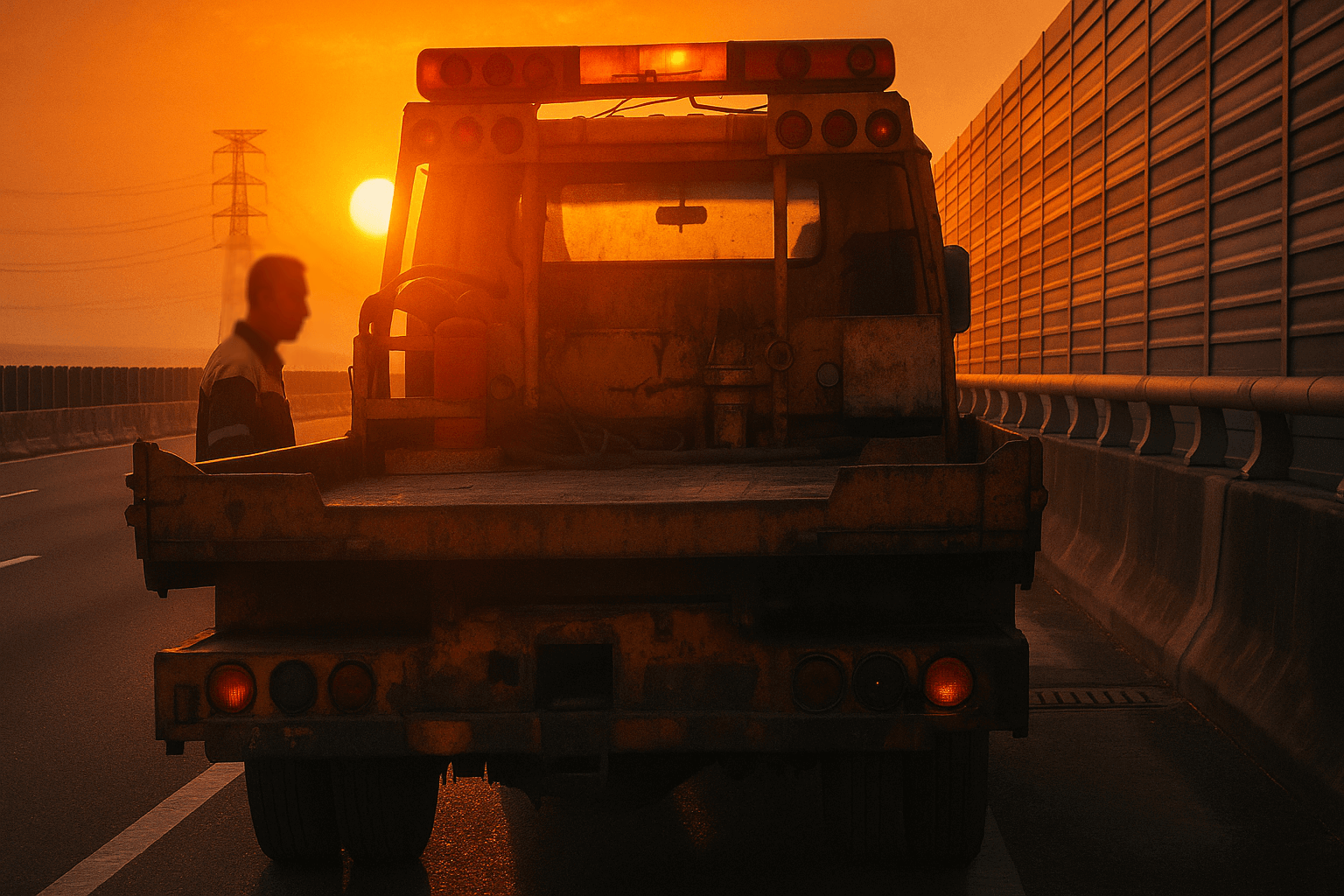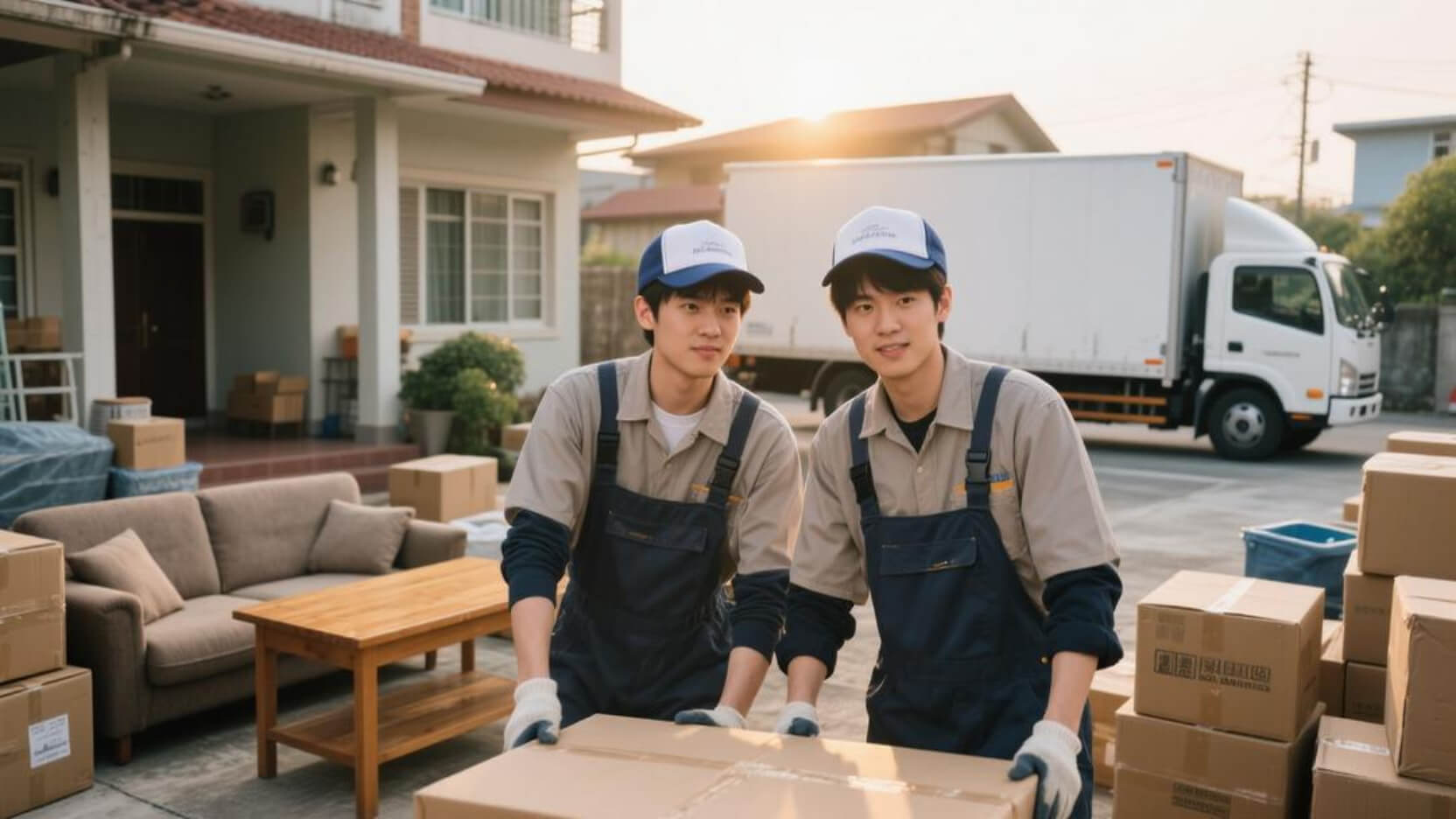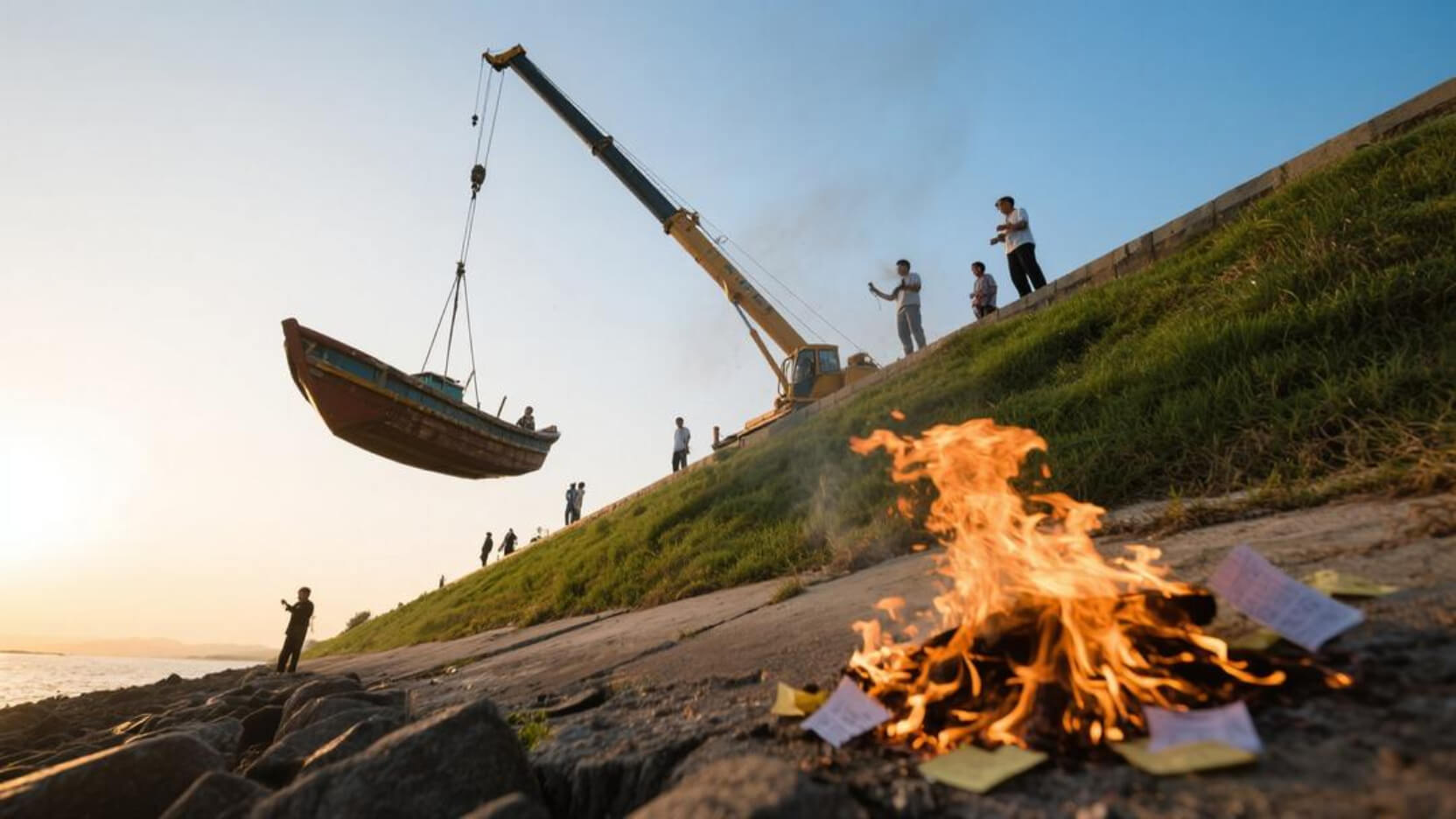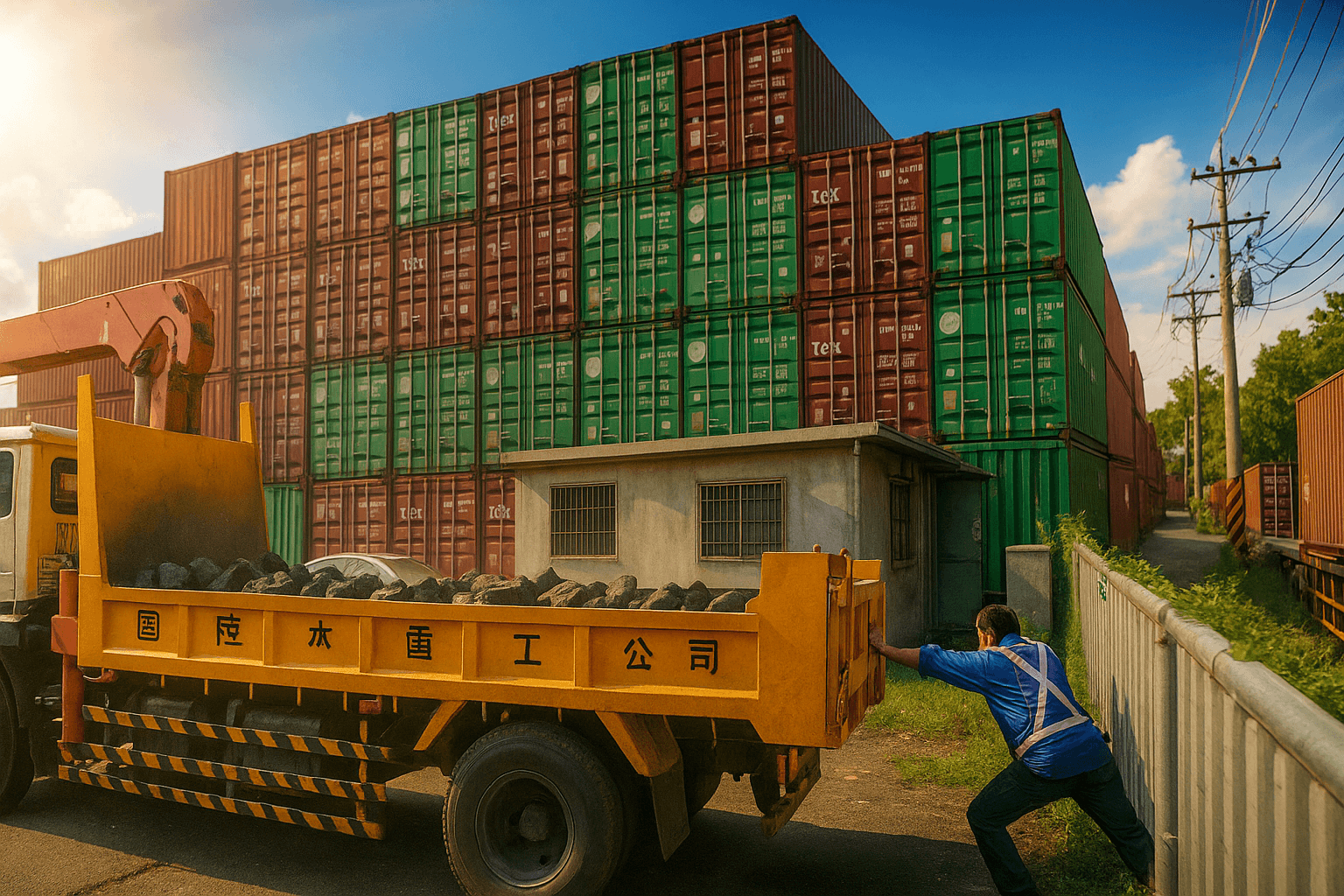Not Just an Isolated Case: What a Threads Discussion Reveals About the Freeway Towing Ecosystem, and How We Can Establish a New Order

A Freeway Towing Incident: A Misunderstanding, or a Frightening Ordeal?
Recently, I saw a post on Threads: a car owner had a flat tire on the freeway. Before the tow truck they called arrived, a strange one showed up. The driver politely declined, but the other party was persistent, using intimidating language and even peering into the car at their son, causing fear.
Car owner one_860330: Just had a tire blowout on the freeway, and a tow truck I didn't call showed up. I already told them I've called for one and don't need their service. They had a bad attitude and threatened me, saying, "Fine, I'm going to report you and have the police ticket you." They even leaned in to look at my son in the back seat. They wouldn't leave and just kept hanging around my car, making phone calls. It was really scary.😭”
View on Threads
Why does this happen?
Many tow truck drivers patrol the freeways, proactively approaching vehicles that have broken down. Their intention might be to "clear the hazard quickly," but if their approach is too aggressive or forceful, it can be misconstrued by the vehicle owner as "aggressively trying to snatch business."
The regulations are actually quite clear:
- If the disabled vehicle is stopped in a traffic lane, it must be cleared as soon as possible, and any available tow truck can move it to a safe location first.
- However, if the vehicle is already safely parked on the shoulder or in an emergency pull-off area, and it has been there for less than an hour, the owner has every right to wait for the tow truck they called and is not obligated to accept on-the-spot service.
Netizens' Harrowing Experiences
This post sparked a wide response, with many netizens sharing their own "freeway horror stories." The most frequently mentioned issue is the so-called "freeway cockroach":
Regarding exorbitant fees and fraudulent tactics:
kingching96: "These are all freeway cockroaches. They'll tow your car to their repair shop, then dismantle it and demand a high repair fee."
jawelon_love: "The freeway police even cooperate with them. I've been towed before, for 8,000, and they just dropped me off at the interchange."
water197229: "I once encountered a tow of less than two kilometers that cost 6,500... and they towed me to an unknown repair shop."
Regarding confusion about regulations and on-site responses:
happyamy3456: "The police said that on the freeway, you must use a contracted tow truck? So I had to let them tow it... I later applied for a refund of the towing fee from my insurance company."
doris_seizethelight: "I had already called a tow truck, but an unknown tow truck driver just called the police to issue me a ticket... Complaining to the motor vehicles office was useless."
Freeway Towing Self-Protection Bible: Debunking Three Major Myths
Based on netizens' experiences, we've compiled three key questions to help you protect your rights in an emergency.
Q1: Do I have to let the "first tow truck that arrives" tow my car?
A: Not necessarily! As shared by netizen x913612 and based on official regulations, the key is "the location of your vehicle."
- If stopped in a traffic lane (extremely dangerous): To prevent a secondary collision, the first qualified tow truck to arrive (regardless of who called it) must move the vehicle to a safe area (like an emergency pull-off or البروتوكول).
- If safely parked on the shoulder: You have the right to wait for the tow truck you designated (such as the one sent by your insurance company). Regulations typically allow for a waiting time of 1 hour.
Q2: The police said I must use a "contracted tow truck." Is that true?
A: Yes, but there's a key point! As netizen jacky_lin_09 mentioned, the truck sent by your insurance company is usually also a contracted vendor of the highway authority. The point isn't "who sent it," but whether the arriving truck is an "official contractor." You can ask them to show their credentials or call the highway authority to confirm.
Q3: What should I do if I'm harassed and the police tell me to "just ignore it" after I call them?
A: This is the most helpless situation. As suggested by netizen guihanden, the best approach is to:
- Stay in your car, lock the doors, and do not engage in conflict.
- Continuously record video, clearly capturing the other party's license plate, appearance, and behavior.
- Call the police or the highway authority again, and state clearly, "A tow truck with license plate XXX is lingering by my car, their language is threatening, and I feel my personal safety is at risk." Using keywords like "personal safety at risk" usually increases the police's attention to the matter.
A Word of Advice to Fellow Drivers
Frankly, we all understand that this job is tough, risky, and income is unstable. Who doesn't want more business? But please, try to see it from another perspective:
- The car owner is already flustered and in a panic; what they need most is a sense of security, not a hard sell.
- "Do you need help?" and "You'll get a ticket if you don't tow!" make a huge difference.
- A better attitude and building trust, even if you don't get the tow this time, could lead to future business.
Conclusion
Freeway towing shouldn't be a battleground; it's a rescue operation. Car owners need calmness and a sense of security, while drivers need respect and understanding.
If we change our approach:
- Car owners will no longer be terrified.
- Fellow drivers can build a better reputation.
Then, there will be far fewer misunderstandings on the road.
Download Road Savior for a Peace-of-Mind Roadside Assistance Experience
After reading this article, are you also worried about sudden situations on the freeway?
At Road Savior, we promise:
- Transparent Pricing: All partner drivers must provide online quotes, and service only begins after your approval.
- Identity Verification: All drivers on the platform undergo basic qualification checks.
- Trip Tracking: The in-app map allows you to track rescue progress at any time.
Next time you need assistance, give yourself a more reassuring choice.



